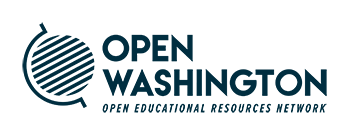Overview – Open Policy Video
OER and Public Policy: Overview and Opportunities
“Changing policy isn’t the equivalent of changing culture. As you are working toward establishing a policy, it’s just as important to begin planning for how that policy is going to be implemented.”
Participants:
- Hal Plotkin, Senior Open Policy Fellow at Creative Commons, Former Senior Policy Advisor to Undersecretary of Education in the US Department of Education.
- Nicole Allen, Director of Open Education at SPARC, the Scholarly Publishing & Academic Resources Coalition.
Summary:
This segment provides background knowledge and terminology on OER policy. Plotkin and Allen first discuss what policy means and develop a tweet-sized summary of OER policy. Then, Allen further identifies the types of OER policies, illustrates how OER policies have been implemented at the federal level, and discusses the benefits of having OER policies at the governance level. Plotkin identifies another benefit of OER Policy in creating opportunities for collaboration between institutions who share similar policies. Afterward, they switch gears and discuss when/how people know it is time for a policy discussion to take place. Allen states that it is important to respect institutional differences and needs. They continue the conversation by addressing the relationship between OER policy and changing culture, and share ideas for successful implementation strategies of OER policy to achieve true cultural shift. They also touch on the impact of digital technologies on open policies. Finally, they conclude the conversation by discussing opportunities for international collaboration around open educational resources.
Guiding inquiries:
- What is OER policy?
- What are the types, goals, and audiences for OER policy?
- What is the relationship between OER policy and culture change?
- What is the status quo of OER policy at the federal and international level?
- What is the relationship between digital technologies and open policies?
- Why is now the time for a discussion about open policy?
Suggested activities:
- Try defining OER policy in your own words. Consider using these elements to characterize OER policy: Format, Condition, Nature, and Traits
- Allen states that it was not always necessary to pass a policy to be effective in advancing OER. Think of a case where the policy is a necessary step to promote OER and also a case that would not require policy to make OER effective.
- OER policies will be needed if the environment has these traits…
- OER policies may not be necessary if the environment has these traits…
- Among types of OER policy introduced (1:03), which one do you feel resonates with your institution’s situation and needs the most? Why?
- This segment presented some of the critical policy changes in OER from the federal level. How will this impact OER implementation at a local institution?
